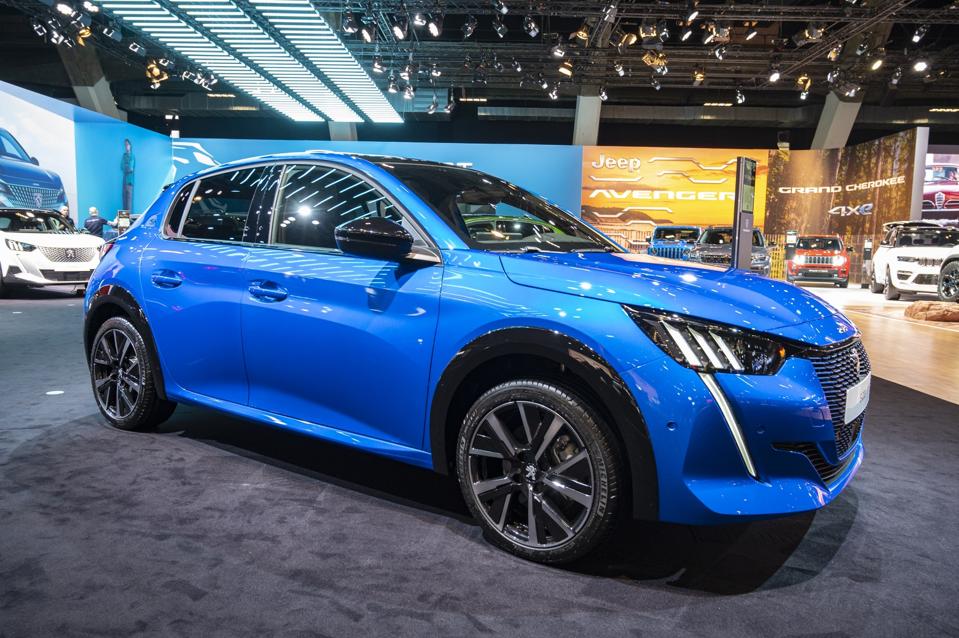European car sales are expected to flatline in 2026 as Chinese manufacturers raise their sales efforts and local manufacturers seek to improve their shaky profitability.
There’s not much argument about the stagnant nature of the market for sedans and SUVs next year. Chinese manufacturers will continue to win sales from Europeans with EV products honed by intense competition at home, and their reputed 30% cost advantage. This scenario doesn’t suggest improved profitability for Europeans. On the contrary, it looks more like nirvana for consumers as manufacturers slash prices in a flat market for limited sales.
But according to a report from Bloomberg Intelligence, European automakers will inch closer to recovery next year after a series of profit warnings in 2025.
European automaker profits in 2025 were hit by U.S. tariffs, weakening demand in China, Chinese competition in Europe, and a market for electric vehicles that failed to live up to expectations. Volkswagen’s Porsche was forced into multiple profit warnings. Multi-brand Stellantis had to make expensive provisions against losses. Between them, Volkswagen and Stellantis brands account for more than 40% of the European market.
CAM report shows extent of profit hit
A report from Germany’s Center of Automotive Management said in the first nine months of 2025 global automotive manufacturers’ average earnings before interest and tax fell to 5.5% from 7.8% in the same period last year, with cumulative operating profits falling almost 30%.
Mercedes recorded the biggest drop from 9.7% to 4.4%. GM and Tesla fell to 4.7% and 4.2%. VW, BMW and BYD saw declining profitability. Ford was the only brand to improve slightly – to 4.4% from 2.9%. Toyota was again the leader, with an EBIT margin of 8.4%, slightly lower than the previous year.
“This development highlights a growing loss of profitability, despite stagnating or slightly increasing revenues. The shift towards electromobility, software defined vehicles, and autonomous systems requires massive investments – costs that are increasingly affecting margins in today’s uncertain market environment,” said CAM director Professor Stefan Bratzel
The profit tide may be turning
Bloomberg Intelligence said the profit tide may be turning as Germany benefits from €3 billion of new EV subsidies and new product programs from many manufacturers stimulate consumer interest.
At least one restraint on profit recovery has been removed. The Dutch government announced Wednesday that it had restored ownership of chip-maker Nexperia to its Chinese owner. This looks like ending the dispute which disrupted many of the world’s leading automakers’ production and promised a repeat of the Covid pandemic semiconductor shortage which crippled output.
Bloomberg Intelligence’s optimism will have to weather the China invasion, particularly of EVs, which more then trebled market share to around 7.0% in the first half of 2025 compared with about 2.0% in 2022, according to BMI, a Fitch Solutions company.
A couple of months ago BMI provided some hope for the under-fire Europeans, saying the next level for Chinese manufacturers may be slowed by local manufacturers’ big EV product response.
European launches promise progress versus Chinese
BMI said model launches planned for 2026-2027 including internal combustion engines, EVs and plug-in hybrids, will prove crucial in defending home markets against intensifying Chinese competition. This will be helped by entrenched local loyalty to heritage European brands.
Major brands like Volkswagen, Mercedes, BMW, Renault and Stellantis are planning a big rollout of more advanced and competitively priced small EVs and PHEVs. Planned EV launches include Volkswagen’s ID1, ID Polo, Renault’s 5 E-Tech, Stellantis’s Citroen e-C3, Peugeot E-208 and Fiat Panda EV.
The next phase for China in Europe will be its switch to producing there, propelled by the European Union’s tariffs on its EVs. These new factories will also help to buttress China’s image among European buyers.
BYD has already announced plans for factories in Hungary, Turkey and Spain. Chery also has a plant in Spain.
GlobalData sees flat 2026 sales
Meanwhile, overall sales in Western Europe will remain flat in 2026, according to GlobalData. Sales for the year are expected to be little changed from last year’s 11.5 million . These might look like big, healthy numbers until you remember sales before the Covid pandemic were almost 16 million a year.
CAM’s Bratzel warned that manufacturers face huge problems and only the most diligent will survive.
“Only manufacturers that combine operational efficiency, cost flexibility, and strategic investments in electrification, software, and automated driving will remain competitive in the long term. Cooperations and alliances will play an increasingly important role, as many companies can no longer shoulder the required investments on their own,” Bratzel said.

